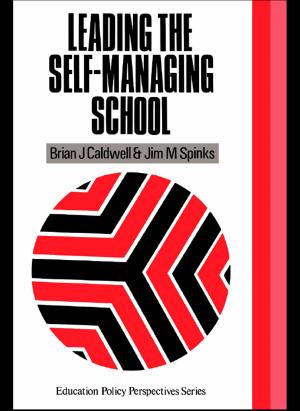Social Work Approaches to Conflict Resolution
Making Fighting Obsolete
Nonfiction, Health & Well Being, Medical, Patient Care, Health Care Delivery, Social & Cultural Studies, Social Science, Social Work, Allied Health Services| Author: | B Harold Chetkow-Yanoov | ISBN: | 9781135431693 |
| Publisher: | Taylor and Francis | Publication: | October 11, 2013 |
| Imprint: | Routledge | Language: | English |
| Author: | B Harold Chetkow-Yanoov |
| ISBN: | 9781135431693 |
| Publisher: | Taylor and Francis |
| Publication: | October 11, 2013 |
| Imprint: | Routledge |
| Language: | English |
Social Work Approaches to Conflict Resolution helps readers understand the nature and causes of conflict and offers suggestions for coping with conflict effectively. It is based on two assumptions: that conflict is a basic part of the life of normal human beings, groups, organizations, communities, and nations, and that resolving conflict is part of the ongoing interventions of all social workers. A practical text for theory-practicum courses for MSW and doctoral students, it is filled with information also useful to therapists, group workers, community workers, administrators, scholars in the social sciences, practitioners in other helping professions, and trainers in the emerging field of conflict resolution itself.
Deliberately linking conflict resolution and systems analysis, Social Work Approaches to Conflict Resolution tackles a number of related themes to help you see the connections between topics not normally presented together in social work literature. You’ll see how unmet needs may cause conflict to evolve and escalate and learn about the connections between strongly held feelings and the destructive relations that have developed between diverse ethnic peoples in many parts of our planet. Author Benyamin Chetkow-Yanoov draws on his own background of being a minority as well as his experience in Arab-Jewish reconciliation in Israel as he offers readers thorough explanations of:
-
a systems model for analyzing conflict
-
problem-solving versus resolving conflict
-
how value clashes and victimization are some of the basic causes of conflict escalation
-
9 professional roles required for resolving conflicts
-
the effectiveness of volunteers in conflict resolution
-
teaching conflict resolution skills to various audiences
-
trends in the evolution of voluntary conflict resolution efforts
You can apply much of what you learn in Social Work Approaches to Conflict Resolution not only to your professional life but also to your personal relationships and experiences. Also, since victimized people and groups are major contributors to the perpetuation and escalation of conflict, the book suggests 10 steps for helping victims free themselves from repeated conflict-generating behaviors.
Social Work Approaches to Conflict Resolution helps readers understand the nature and causes of conflict and offers suggestions for coping with conflict effectively. It is based on two assumptions: that conflict is a basic part of the life of normal human beings, groups, organizations, communities, and nations, and that resolving conflict is part of the ongoing interventions of all social workers. A practical text for theory-practicum courses for MSW and doctoral students, it is filled with information also useful to therapists, group workers, community workers, administrators, scholars in the social sciences, practitioners in other helping professions, and trainers in the emerging field of conflict resolution itself.
Deliberately linking conflict resolution and systems analysis, Social Work Approaches to Conflict Resolution tackles a number of related themes to help you see the connections between topics not normally presented together in social work literature. You’ll see how unmet needs may cause conflict to evolve and escalate and learn about the connections between strongly held feelings and the destructive relations that have developed between diverse ethnic peoples in many parts of our planet. Author Benyamin Chetkow-Yanoov draws on his own background of being a minority as well as his experience in Arab-Jewish reconciliation in Israel as he offers readers thorough explanations of:
-
a systems model for analyzing conflict
-
problem-solving versus resolving conflict
-
how value clashes and victimization are some of the basic causes of conflict escalation
-
9 professional roles required for resolving conflicts
-
the effectiveness of volunteers in conflict resolution
-
teaching conflict resolution skills to various audiences
-
trends in the evolution of voluntary conflict resolution efforts
You can apply much of what you learn in Social Work Approaches to Conflict Resolution not only to your professional life but also to your personal relationships and experiences. Also, since victimized people and groups are major contributors to the perpetuation and escalation of conflict, the book suggests 10 steps for helping victims free themselves from repeated conflict-generating behaviors.















